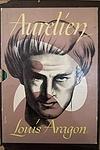The Greatest French "Historical fiction" Books From 1940 to 1949
Click to learn how this list is calculated.
This list represents a comprehensive and trusted collection of the greatest books. Developed through a specialized algorithm, it brings together 290 'best of' book lists to form a definitive guide to the world's most acclaimed books. For those interested in how these books are chosen, additional details can be found on the rankings page.
Genres
Historical fiction is a genre of literature that combines fictional stories with real historical events, settings, and characters. These books often take place in a specific time period and are based on research and factual information, but also include imaginative elements to create a compelling narrative. Historical fiction allows readers to experience the past in a unique and engaging way, while also providing insight into the social, cultural, and political issues of the time.
Countries
Date Range
Reading Statistics
Click the button below to see how many of these books you've read!
Download
If you're interested in downloading this list as a CSV file for use in a spreadsheet application, you can easily do so by clicking the button below. Please note that to ensure a manageable file size and faster download, the CSV will include details for only the first 500 books.
Download-
1. The Case of Comrade Tulayev by Victor Serge
"The Case of Comrade Tulayev" is a political novel set in the Stalinist era of the Soviet Union. The story begins with the murder of a high-ranking Soviet official, Comrade Tulayev, which sets off a series of events leading to the arrest and execution of innocent people. It provides an in-depth exploration of the paranoia, fear, and injustice that characterized Stalin's regime, showing the human cost of political purges and the absurdity of the bureaucratic system.
-
2. Aurélien by Louis Aragon
"Aurélien" is a novel set in post-World War I Paris, following the life of the protagonist, a war veteran, who falls in love with a woman he sees in a café. However, the woman is already engaged to a friend of his, leading to a tumultuous love triangle. The book explores themes of love, war, and the struggle of the human condition, presenting a vivid picture of the social and political landscape of Paris during the 1920s.
-
3. Silence de la Mer by Vercors
The novel is set during the German occupation of France in World War II and tells the story of an older man and his niece who are forced to host a German officer in their home. The pair respond to their unwanted guest by maintaining a strict silence, refusing to engage in conversation with him. Despite their resistance, the German officer, who is cultured and sophisticated, shares his love of French culture and his hopes for a peaceful Europe. The story explores themes of resistance, occupation, and the power of silence.
-
4. Silence Of The Sea by Jean Bruller
The book is a poignant wartime novella that tells the story of a German officer who is billeted in the house of a Frenchman during the Nazi occupation of France. The French family chooses a powerful form of resistance: complete silence. They never speak to the officer, who is cultured and refined, and who struggles with his role in the war and the occupation. Despite the lack of verbal communication, the officer opens up about his feelings and thoughts, revealing his humanity and the tragedy of war. The narrative explores themes of resistance, the human condition, and the profound impact of nonviolent defiance.
-
5. The Woman Of The Pharisees by François Mauriac
The novel is a penetrating character study set in early 20th-century France, told through the eyes of a young man reflecting on his past. It centers around a devoutly Catholic woman, whose outward piety and strict adherence to religious principles mask a deep-seated pride and a penchant for manipulation. As the narrator recounts his experiences with this woman, who is closely associated with his family, the narrative explores themes of hypocrisy, morality, and the complex interplay between religion and human nature. The woman's influence on those around her leads to various personal tragedies, revealing the dangers of self-righteousness and the often harsh judgment she imposes on others in the name of virtue.
Reading Statistics
Click the button below to see how many of these books you've read!
Download
If you're interested in downloading this list as a CSV file for use in a spreadsheet application, you can easily do so by clicking the button below. Please note that to ensure a manageable file size and faster download, the CSV will include details for only the first 500 books.
Download



